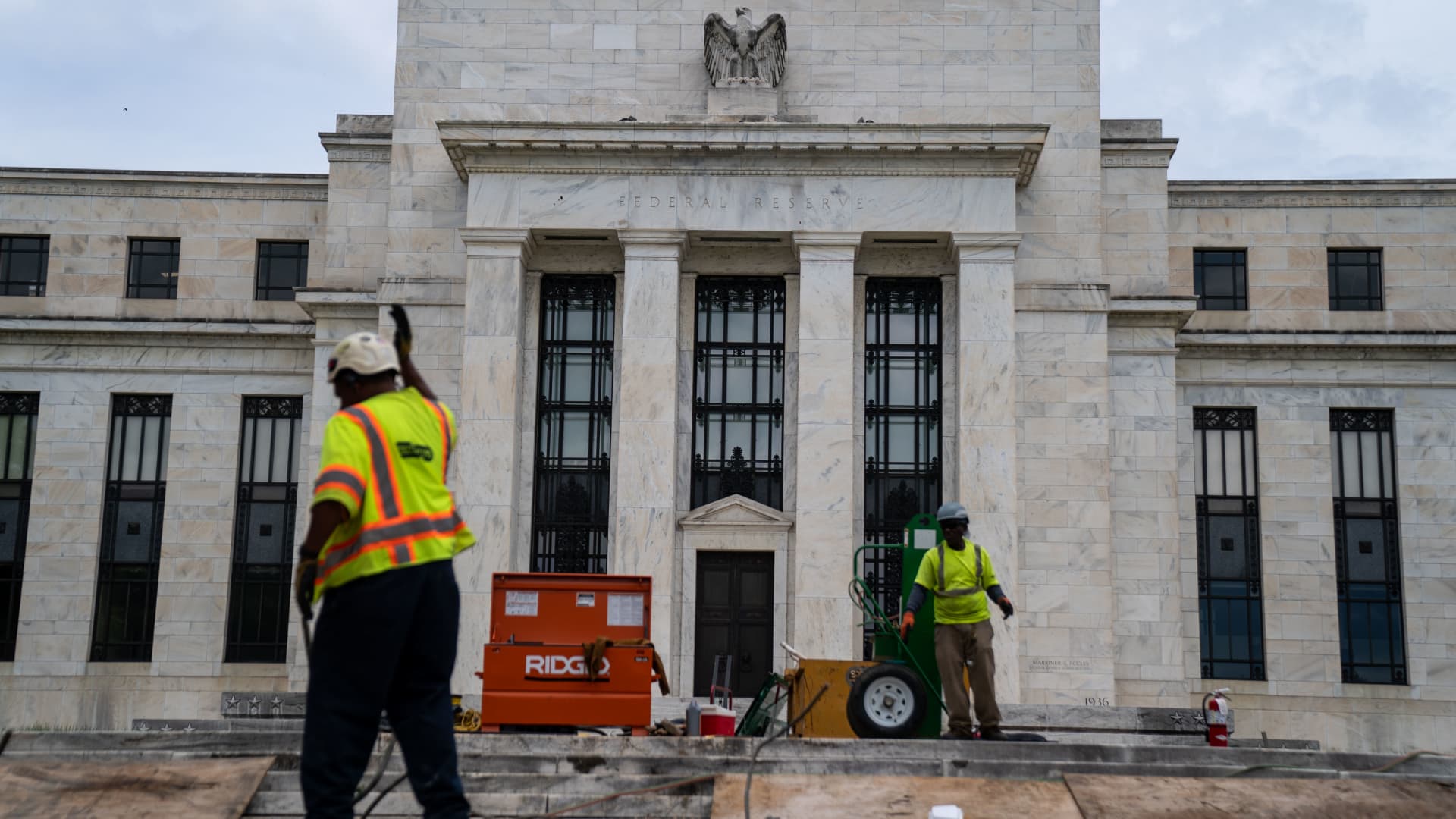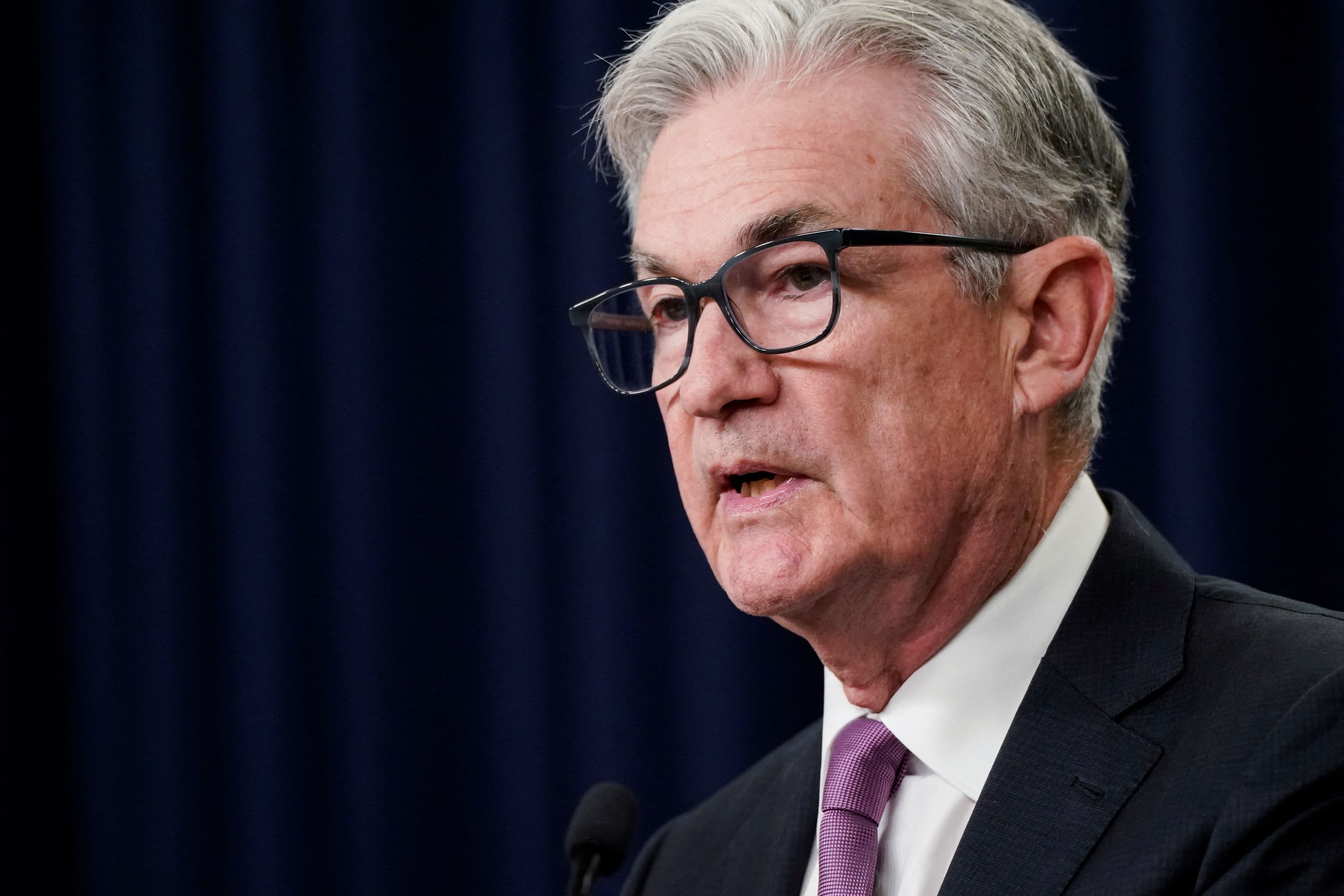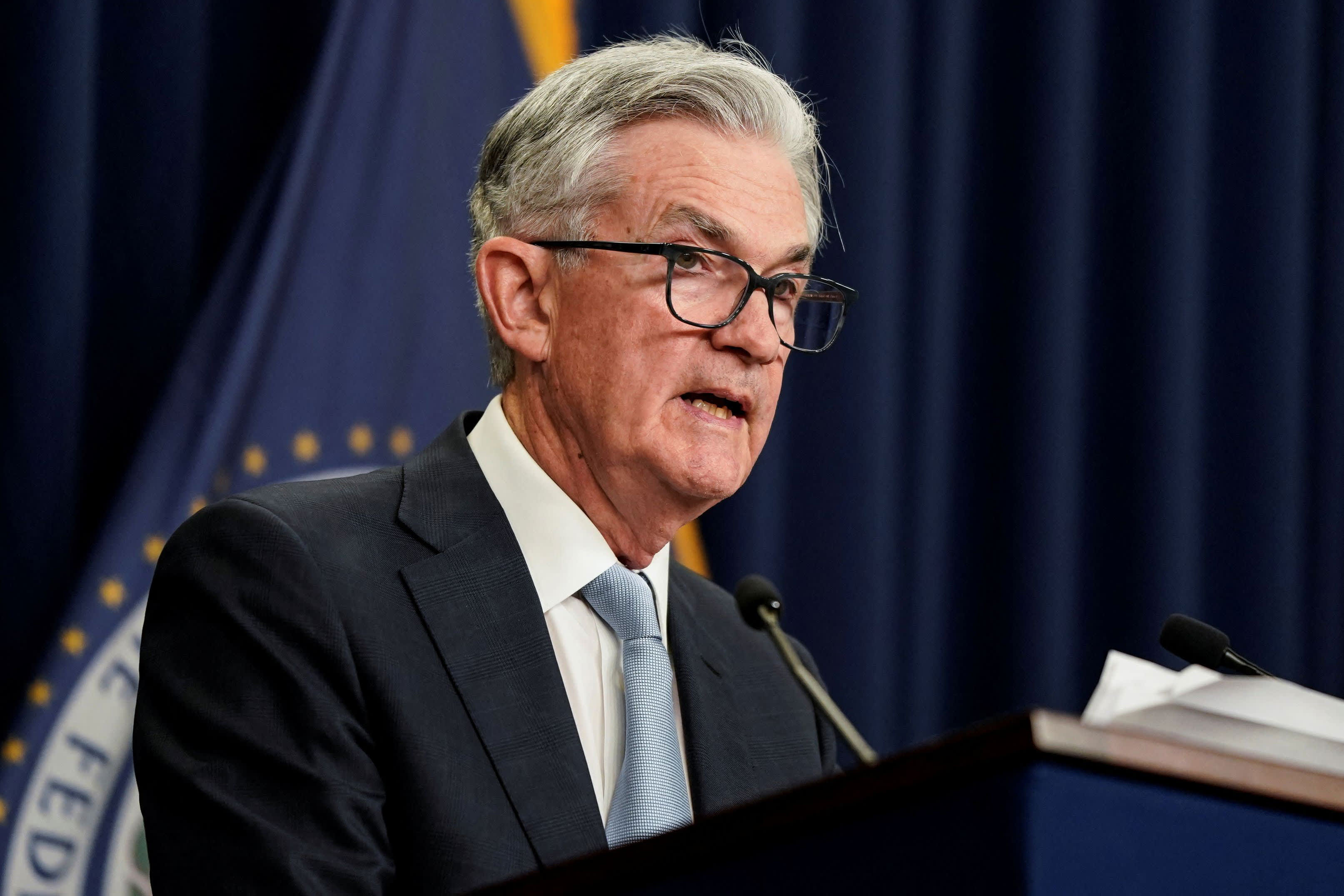There’s not a lot of mystery surrounding Wednesday’s Federal Reserve meeting, with markets widely expecting the central bank to approve its third consecutive three-quarter point interest rate hike.
That doesn’t mean there isn’t considerable intrigue, though.
related investing news
While the Fed almost certainly will deliver what the market has ordered, it has plenty of other items on its docket that will catch Wall Street’s attention.
Here’s a quick rundown of what to expect from the rate-setting Federal Open Market Committee meeting:
Rates: In its continuing quest to tackle runaway inflation, the Fed almost certainly will approve a 0.75 percentage point hike that will take its benchmark rate up to a target range of 3%-3.25%. That’s the highest the fed funds rate has been since early 2008. Markets are pricing in a slight chance for a full 1 percentage point increase, something the Fed has never done since it started using the fed funds rate as its primary policy tool in 1990.
Economic outlook: Part of this week’s meeting will see Fed officials issue a quarterly update of their interest rate and economic outlook. While the Summary of Economic Projections is not an official forecast, it does provide insight into where policymakers see various metrics and interest rates heading. The SEP includes estimates for GDP, unemployment and inflation as gauged by the personal consumption expenditures price index.
The “dot plot” and the “terminal rate”: Investors will be most closely watching the so-called dot plot of individual members’ rate projections for the rest of 2022 and subsequent years, with this meeting’s version extending for the first time into 2025. Included in that will be the projection for the “terminal rate,” or the point where officials think they can stop raising rates, which could be the most market-moving event of the meeting. In June, the committee put the terminal rate at 3.8%; it’s likely to be at least half a percentage point higher following this week’s meeting.
Powell presser: Fed Chairman Jerome Powell will hold his usual news conference following the conclusion of the two-day meeting. In his most notable remarks since the last meeting in July, Powell delivered a short, sharp address at the Fed’s annual Jackson Hole, Wyoming, symposium in late August emphasizing his commitment to bringing down inflation and in particular his willingness to inflict “some pain” on the economy to make that happen.
New kids on the block: One slight wrinkle at this meeting is the input of three relatively new members: Governor Michael S. Barr and regional Presidents Lorie Logan of Dallas and Susan Collins of Boston. Collins and Barr attended the previous meeting in July, but this will be their first SEP and dot plot. While individual names are not attached to projections, it will be interesting to see whether the new members are on board with the direction of Fed policy.
The big picture
Put it all together, and what investors will be watching most closely will be the meeting’s tone – specifically how far the Fed is willing to go to tackle inflation and whether it is concerned about doing too much and taking the economy into a steeper recession.
Judging by recent market action and commentary, the expectation is for a hawkish hard line.
“Fighting inflation is job-one,” said Eric Winograd, senior economist at AllianceBernstein. “The consequences of not fighting inflation are greater than the consequences of fighting it. If that means recession, then that’s what it means.”
Winograd expects Powell and the Fed to stick to the Jackson Hole script that financial and economic stability are wholly dependent on price stability.
In recent days, markets have begun to relinquish the belief that the Fed will only hike through this year then start cutting possibly by early or mid-2023.
“If inflation is really stubborn and stays high, they may just have to grit their teeth and have a recession that lasts for a while,” said Bill English, a professor at the Yale School of Management and former senior Fed economist. “It’s a very tough time to be a central banker right now, and they’ll do their best. But it’s hard.”
The Fed has accomplished some of its goals toward tightening financial conditions, with stocks in retreat, the housing market slumping to the point of a recession and Treasury yields surging to highs not seen since the early days of the financial crisis. Household net worth fell more than 4% in the second quarter to $143.8 trillion, due largely to a decline in the valuation of stock market holdings, according to Fed data released earlier in September.
However, the labor market has stayed strong and worker pay continues to rise, creating worries over a wage-price spiral even with gasoline costs at the pump in retreat. In recent days, both Morgan Stanley and Goldman Sachs conceded that the Fed may have to raise rates into 2023 to bring down prices.
“The kind of door that the Fed is trying to get through, where they slow things down enough to get inflation down but not so much that they cause a recession is a very narrow door and I think it has gotten narrower,” English said. There’s a corresponding scenario where inflation stays stubbornly high and the Fed has to keep raising, which he said is “a very bad alternative down the road.”



